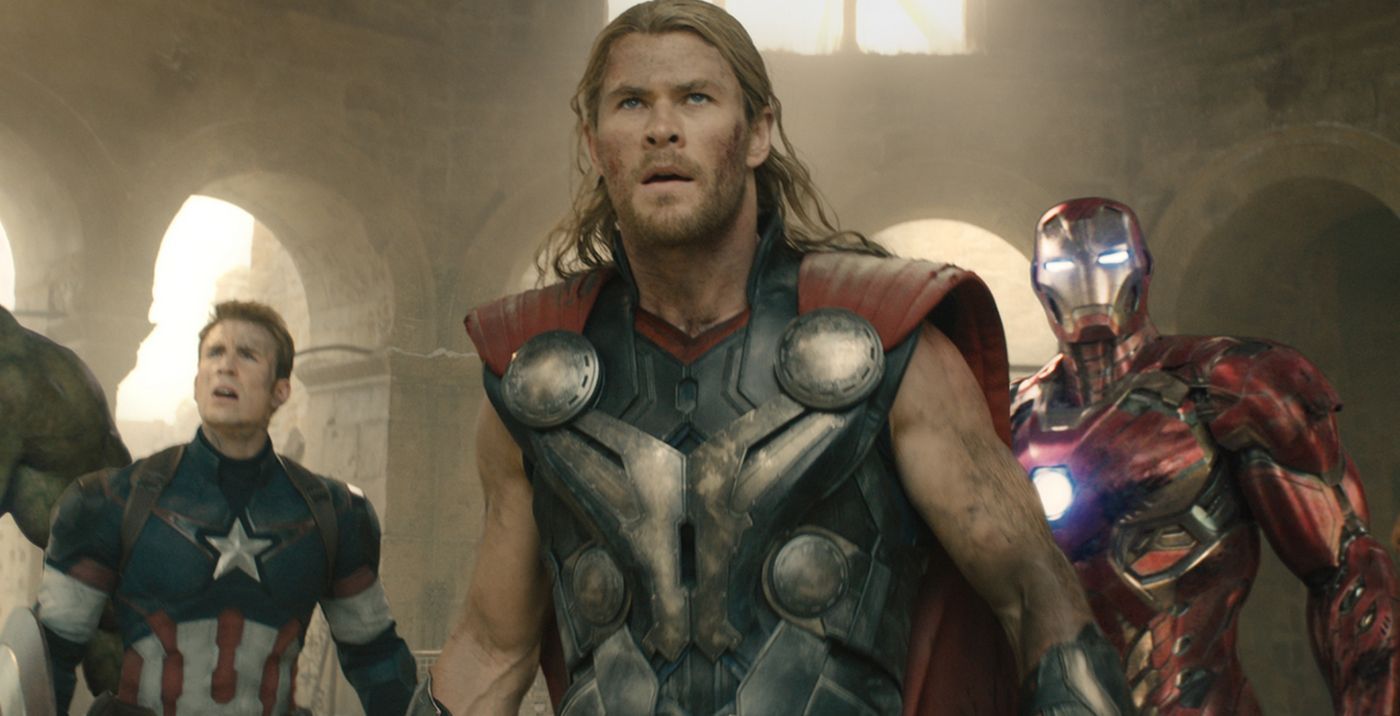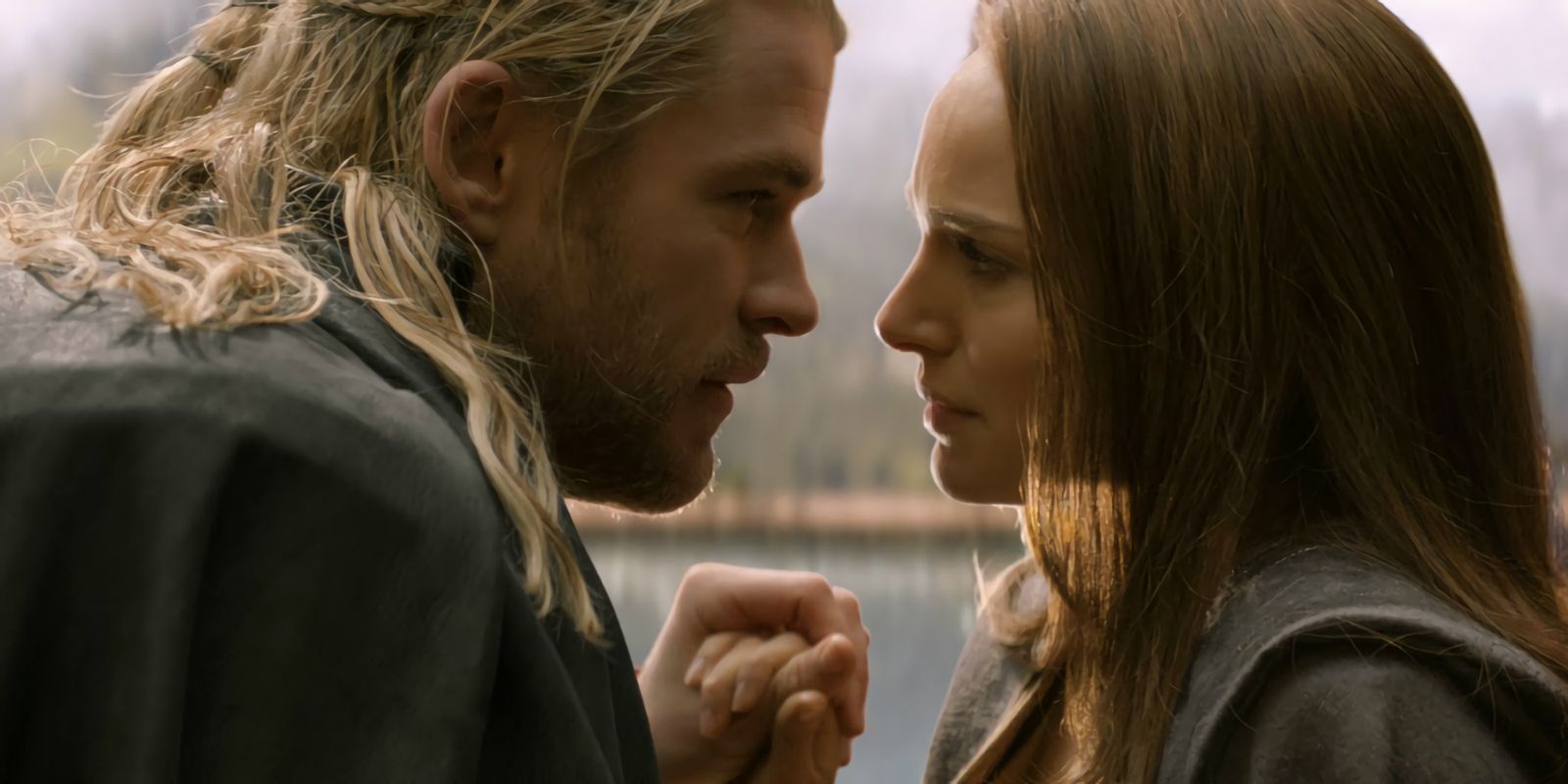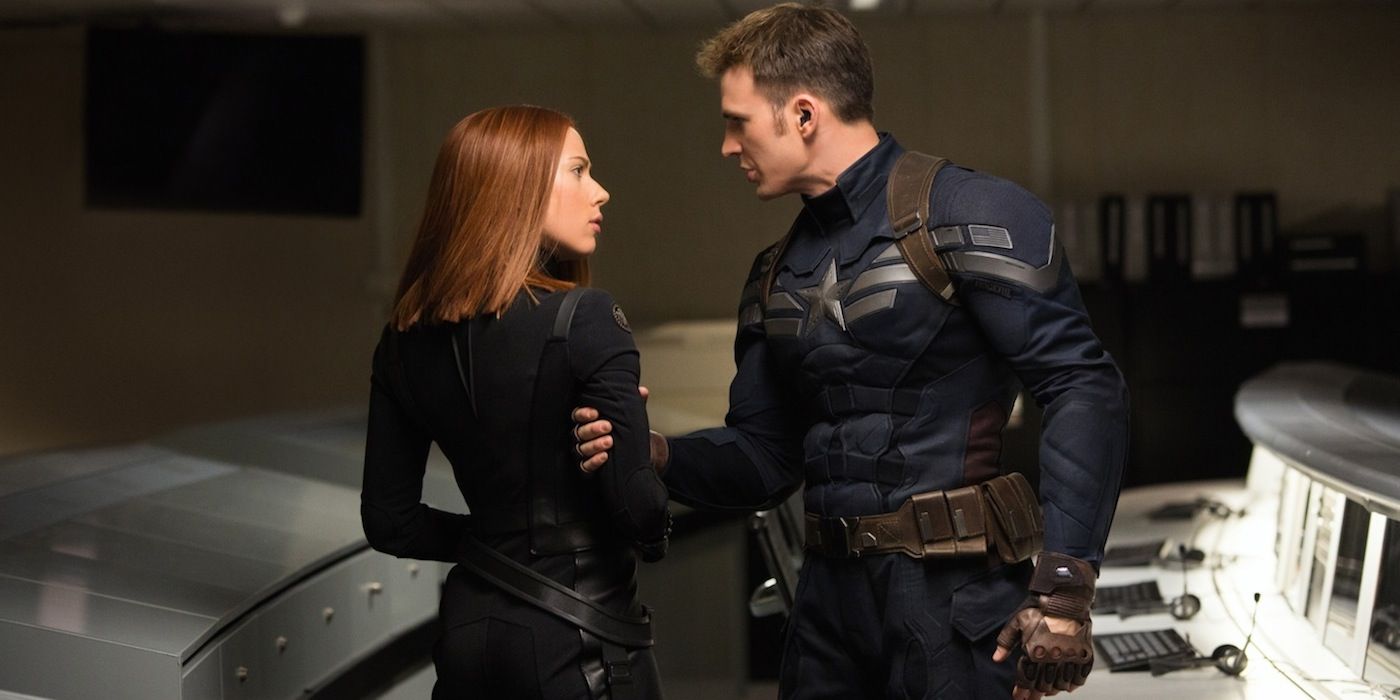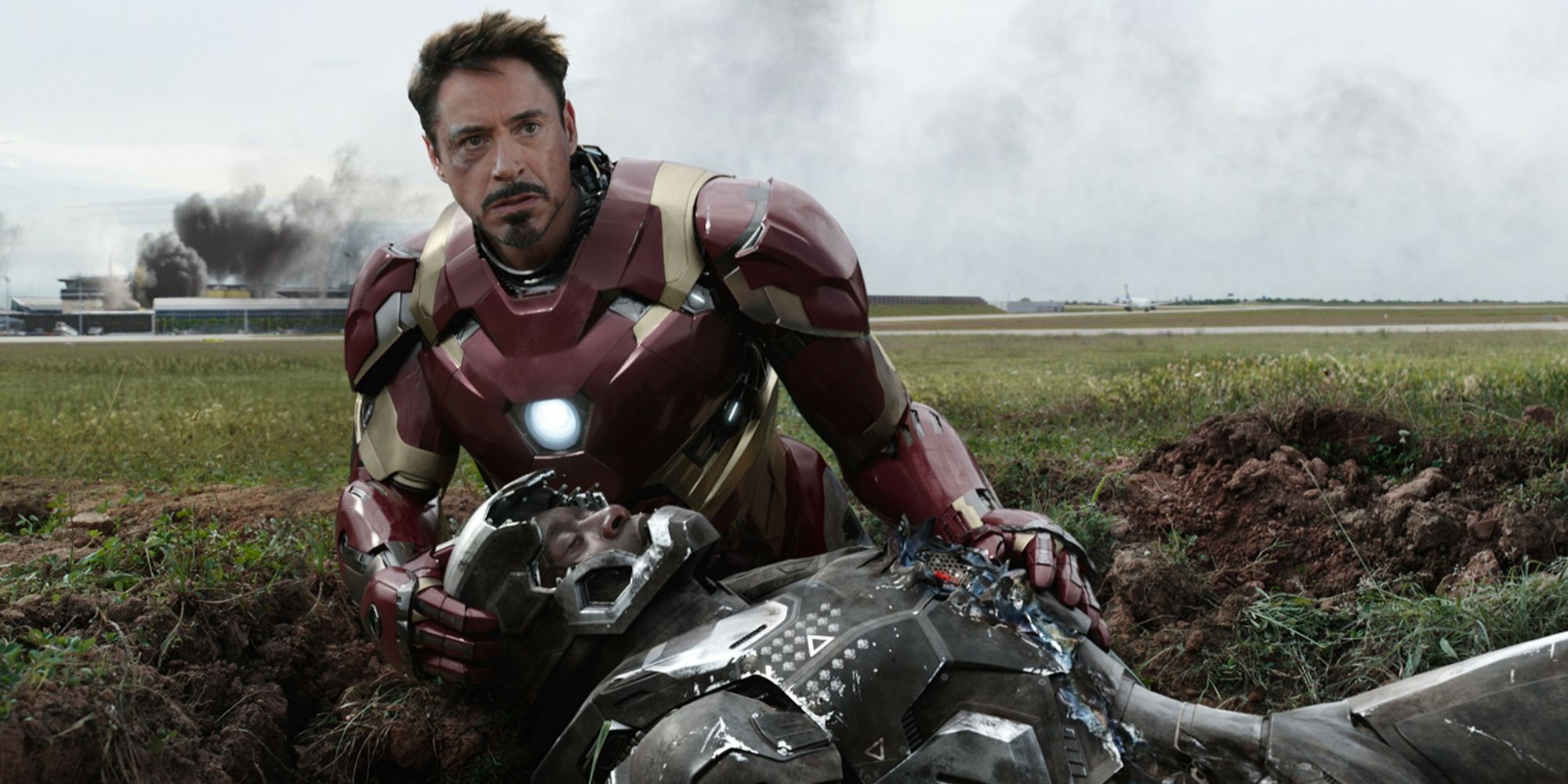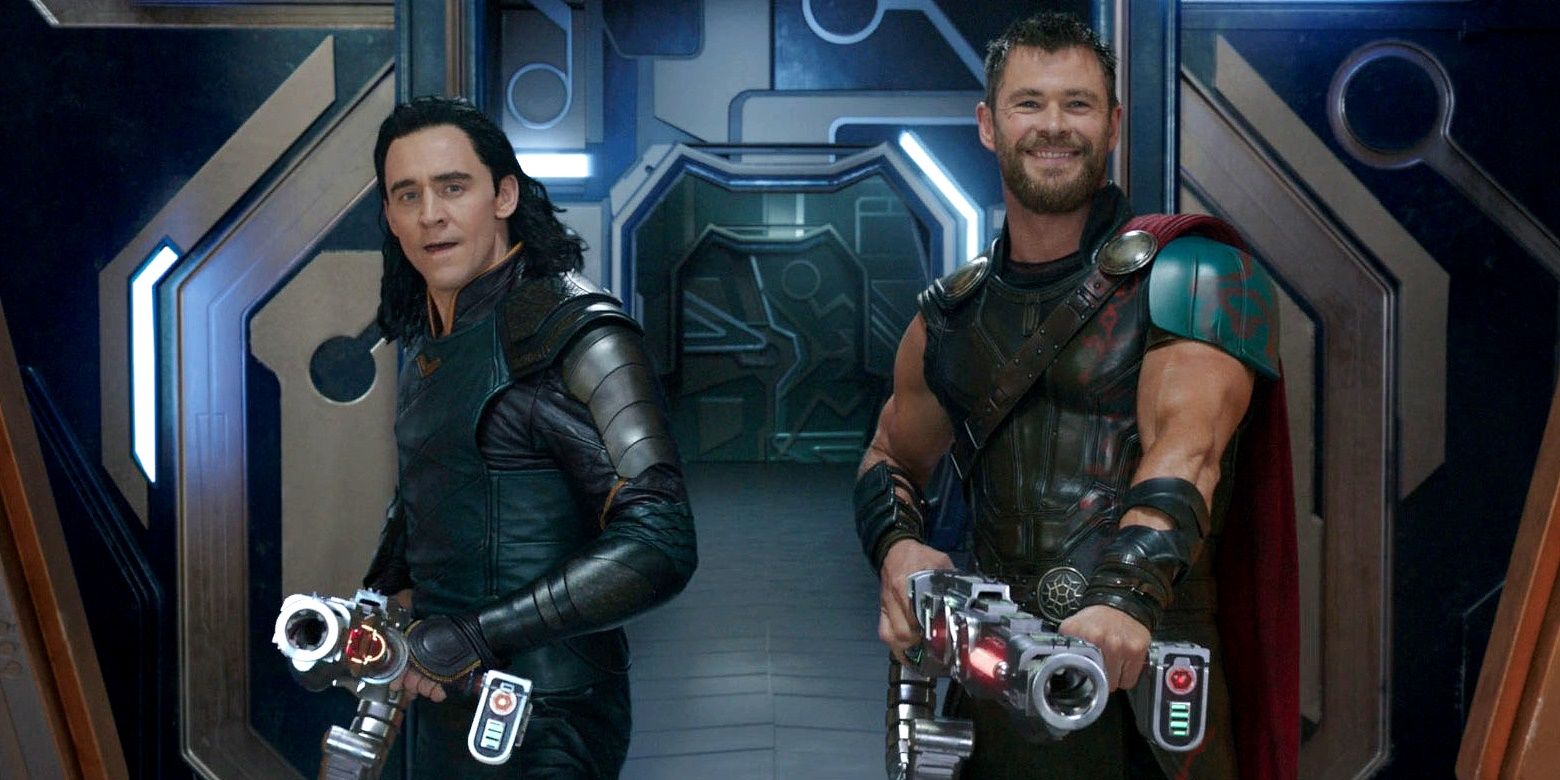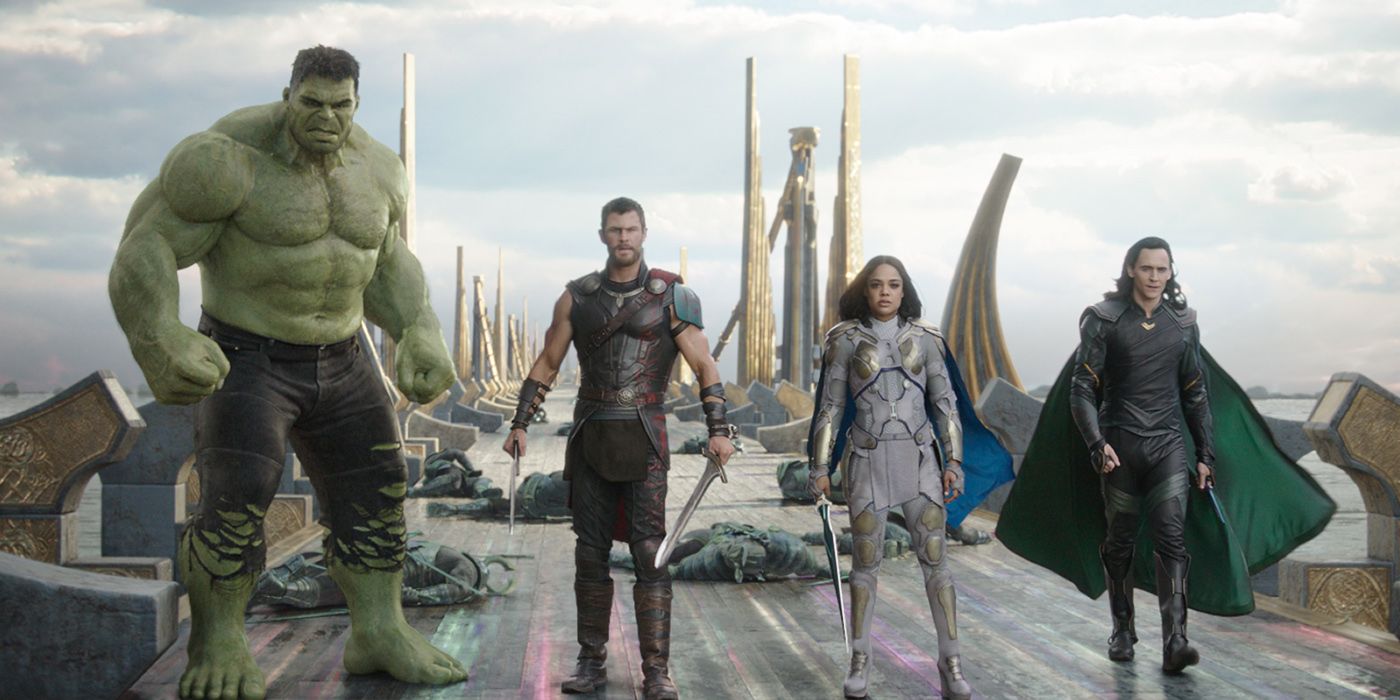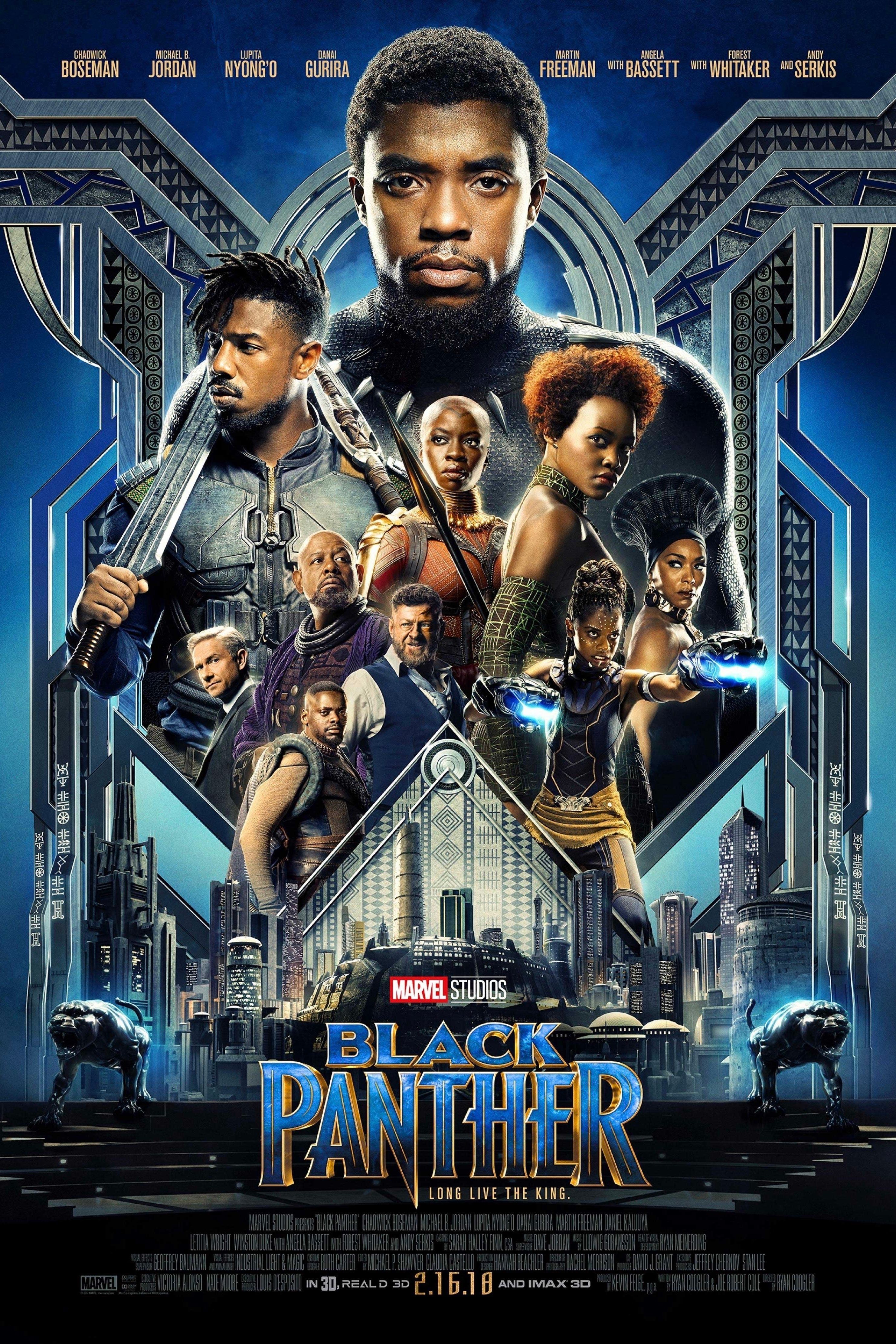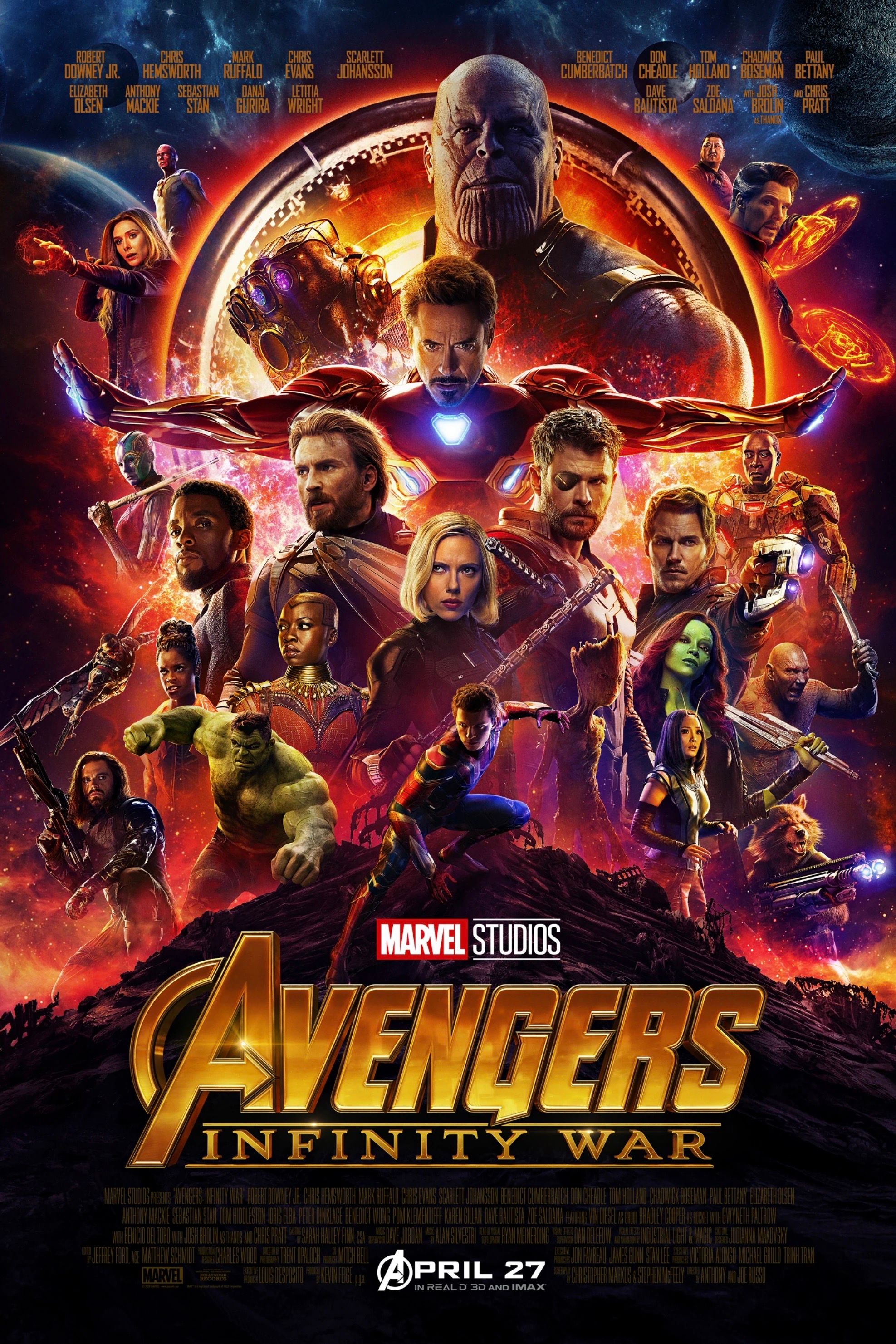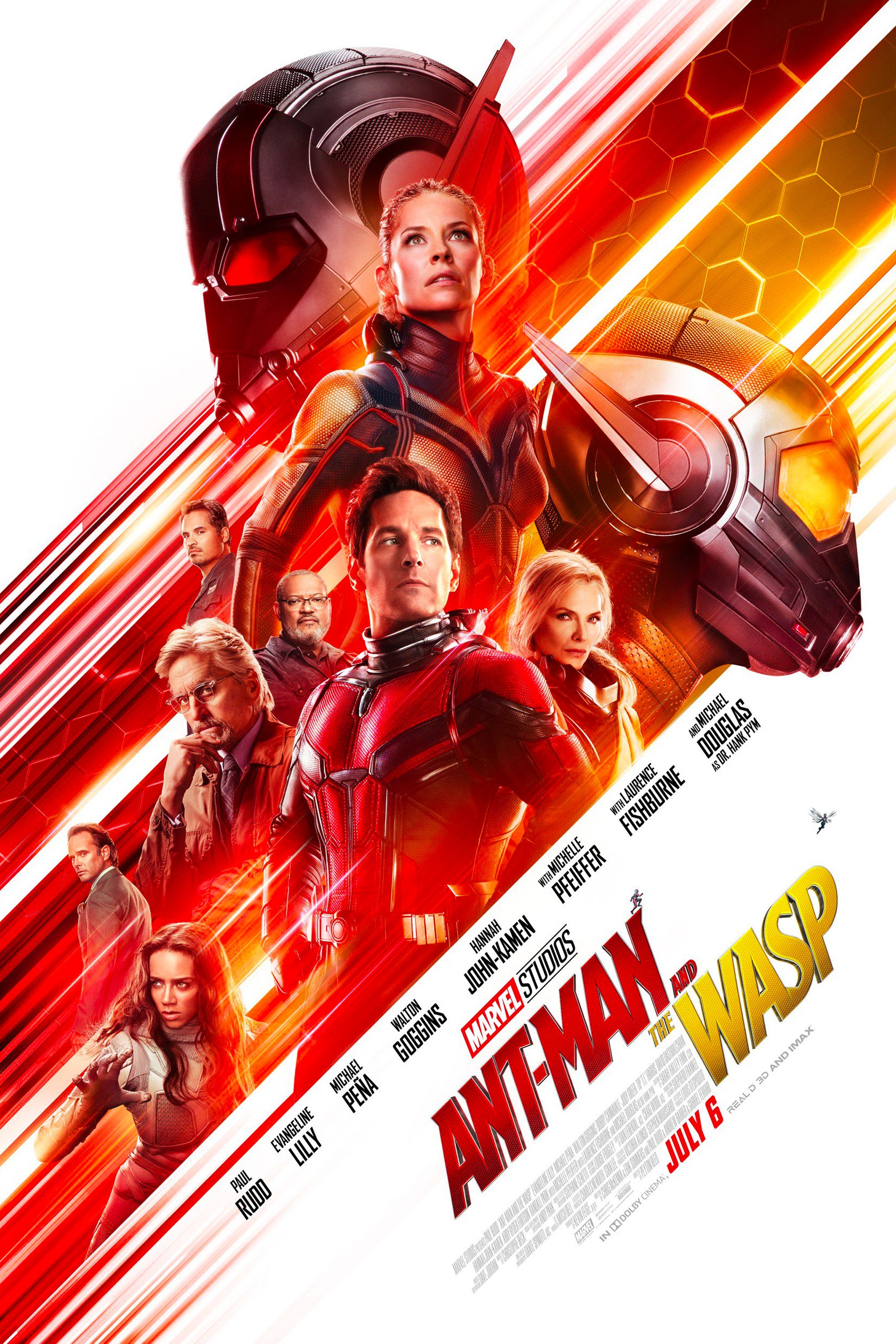Thor: Ragnarok is currently rocking the box office. We know that in Thor's mind, he is unquestionably the strongest Avenger. But can the God of Thunder proudly boast that his trilogy of films is the best of his fellow Avengers? Even with Marvel's gigantic slate of superhero films, a trilogy has been an uncommon feat for the studio. Thor (Chris Hemsworth) is one of only three of Marvel's mightiest heroes to achieve the trifecta as a headliner of his own Marvel Cinematic Universe franchise. (The Avengers collectively will hit the magic number next May with Avengers: Infinity War and the Guardians of the Galaxy will follow suit in the MCU's Phase 4.) Stacked up against the franchises helmed by Iron Man (Robert Downey, Jr.) and Captain America (Chris Evans), does Thor's trilogy win, easily? (That doesn't sound right.)
The Marvel shared universe is a different animal than your normal movie franchise trilogies like The Dark Knight, Back to the Future, or even Star Wars, and Marvel's trilogies also function differently. There's a burden inherent to Marvel of not only telling a complete and satisfying story in each movie, but also servicing the needs of the shared universe and weaving in ties (both subtle and overt) to the greater MCU. Iron Man 2 and Avengers: Age of Ultron are two examples of films fans take to task for having their narratives disrupted in a detrimental way by the requirement of having to set up other Marvel films to come. However, there are tremendous benefits to the Marvel method as well: guest stars and team ups with fellow Marvel heroes are proven to boost the all-around fun factor of the films.
Related: All The Ways Thor: Ragnarok Sets Up Avengers: Infinity War
Like the first Iron Man and Captain America: The First Avenger, the inaugural Thor directed by Kenneth Branagh was a compact and largely self-contained adventure. Branagh's task was to introduce what was then a risky concept to the burgeoning MCU: the mythology of the alien gods of Asgard and their central hero, the mighty, proud, arrogant, magic hammer-wielding God of Thunder. Branagh had to make Thor relatable to audiences, and that meant juggling two tried and true movie tropes: a Fish Out of Water scenario and a love story. Thor was depowered and banished to a tiny New Mexico town where the then-unknown but gruffly charismatic Chris Hemsworth was paired with Oscar winner Natalie Portman as physicist Jane Foster. Thor and Jane's meet cute made for a pleasing rom com that anchored some largely forgettable mythological action involving Frost Giants and a giant robot called the Destroyer sent to kill Thor.
The most memorable things in the first Thor was Thor smashing silverware in a diner and the introduction of the God of Mischief Loki (Tom Hiddleston), who remains the finest villain in the MCU. Also, Clint Barton/Hawkeye (Jeremy Renner) has a brief walk on which marks his debut in the MCU and satisfies the studio's requirement to set up the forthcoming Avengers movie. While missing the mark as a sweeping epic fantasy, Branagh's Thor is a tidy and fun little Marvel movie and its virtues hold up favorably upon rewatch. But it's no Iron Man (which still ranks among most fans' top three of all the Marvel movies), and the spectacle of Asgard overall feels slight and isn't as intriguing as The First Avenger's depiction of the Marvel version of World War II.
Related: Where Is The Final Infinity Stone?
Thor: The Dark World tends to orbit somewhere towards the bottom of most fans' lists of their favorite Marvel movies, which makes it a lot like Iron Man 2. Directed by Alan Parker (Terminator: Genisys), The Dark World had a lot of MCU business to take care of by introducing the Aether, which was revealed to be the Reality Stone, one of the six Infinity Stones. The Dark World pulled a switcheroo on the original Thor's Fish Out of Water formula by having Thor bring Jane to Asgard to meet his parents. Despite a grander scope to Asgard and much more spectacle on display - including what was by now a Marvel movie trope of something terrible coming from the sky destroying an Earth city in the third act - the most memorable and crowd-pleasing moment in The Dark World was a tiny comedy bit where Thor enters Jane's London flat and politely hangs his hammer on a coat hook. (This welcome laugh in an otherwise earnestly serious superhero fantasy adventure would herald the overall direction of the third Thor film.)
With its second film, the Captain America franchise outgrew its original period trappings and launched Steve Rogers headlong into modern day by successfully melding a Marvel superhero movie with the paranoia of a 1970's political thriller. Directed by Joe and Anthony Russo (Community), Captain America: The Winter Soldier was a game-changer for Marvel, not just for demolishing S.H.I.E.L.D. and revealing it was under the thrall of HYDRA since its inception, but for proving a Captain America film can successfully work as a mini-Avengers movie.
With other superheroes in supporting roles - Natasha Romanoff/The Black Widow (Scarlett Johansson), Sam Wilson/The Falcon (Anthony Mackie) - The Winter Soldier still maintained its focus squarely on Steve Rogers and his struggle to redeem his lifelong best friend Bucky Barnes (Sebastian Stan), who was revealed to still be alive as the mind-wiped Winter Soldier. With this sequel, Captain America's true arc emerged: Steve Rogers - a man from the sepia-toned past trying to fit into a tenuous present day - would cling to his need to save Bucky, who represents that past, eventually to the detriment of his new family the Avengers. Captain America: The Winter Soldier was a new high for Marvel Studios, and it stands proudly as one of the very best films in the MCU.
Related: Marvel Cinematic Universe Crosses $5-Billion Domestically
Iron Man 3 was also a new high for Tony Stark while setting him on a personal low. It was a billion-dollar global hit and one of the MCU's first examples of a film driven by the personality of its director, Shane Black (Kiss Kiss Bang Bang). Iron Man 3 is perhaps best remembered for its controversial reveal that the villainous Mandarin, teased as the Big Bad since the first Iron Man, was just an actor played by a loopy Sir Ben Kingsley. Otherwise, Black explored the darker reaches of Tony Stark's psyche as Tony grappled with PTSD following his near-death experience when he saved Manhattan from the Chitauri invasion fleet at the conclusion of The Avengers. This ultimately led to his catastrophic mistake of creating Ultron in the second Avengers movie. The Iron Man films, which were about an arrogant billionaire who found a spark of heroism, concluded with a redemption of sorts for Tony Stark, who now felt obligated to build "a suit of armor around the world".
Stark's struggles with mental illness would carry over into the third Captain America film, which was in every way but name a third Avengers movie missing only Thor and the Incredible Hulk (Mark Ruffalo). Stark's guilt over Ultron and Sokovia would push him in the opposite trajectory, from the man who grandstanded in defiance of the US Government in Iron Man 2 to a man who argued for the Avengers to become accountable to the United Nations and submit to the oversight of the Sokovia Accords. After all of his failures, Stark no longer trusted his own judgment, and he needed Steve Rogers to remain the Avengers' moral compass. However, Steve was resolute in his belief that not only were the Sokovia Accords wrong for the Avengers, but that Bucky was innocent of killing the king of Wakanda, which drew T'Challa/The Black Panther (Chadwick Boseman) into the wilds of the MCU on a quest to avenge his father.
Captain America: Civil War is one of the greatest third acts in movie trilogy history. The Russos juggled a dozen superheroes battling each other over differing ideological opinions while retaining fans' rooting interest in every superhero, plus they successfully introduced two more, the Black Panther and the Amazing Spider-Man (Tom Holland). While it could be unfair to call Civil War a Captain America film with so many Avengers in it, the central character of the narrative remains Steve Rogers, who rejects Tony Stark's overtures for a truce in favor of defending his lifelong friend Bucky. The revelation that Bucky murdered Tony's parents made the rift between Stark and Rogers permanent - but not insurmountable. The MCU continues to reel from the seismic upheaval caused by Civil War. Meanwhile, someone who is (still) blissfully unaware of the Avengers' disassembly is Thor.
The Iron Man, Captain America and Thor trilogies each amount to a 2-1 ratio of two 'great' ones and one generally 'bad' one. In ranking Thor's trilogy against Stark's and Rogers', the question lies in testing Thor's highs and lows against the others. We could say with Stark, Iron Man is great, Iron Man 2 is the bad one, and Iron Man 3 is good-to-great. Rogers comes up as an even stronger Avenger: if The First Avenger is the 'bad' one (relatively, and it's still pretty good), The Winter Soldier is great and Civil War is also great. (Granted, Cap had by far the most help from the rest of the Avengers.) As for Thor, his first movie is good, but not great. The Dark World has to rank as the 'bad' one. Thankfully, with Thor: Ragnarok, the God of Thunder achieved his apex. Taika Waititi's film is a hilarious intergalactic romp of super-charged electric revelry. But to achieve what Ragnarok achieved, Waititi admittedly had to "break" Thor, thereby exposing the lack of cohesiveness within the Thor trilogy.
If Thor: Ragnarok felt more like a reboot and the start of a new franchise rather than a capper to the existing trilogy, this was intentional. Waititi breathed new life into Thor. He severed the God of Thunder from nearly every aspect of what was expected of a Thor movie - from giving Thor a haircut and destroying his precious hammer Mjolnir; to jettisoning Thor's human supporting cast including Jane Foster; to killing Odin and Thor's friends the Warriors Three, and finally eradicating Asgard itself by the end. And yet, even with all of that loss there were no tears shed, besides tears from laughter.
Related: Valkyrie Should Lead The Thor Franchise in Phase 4
In Ragnarok, we thrilled to our new, funnier, more self-aware Thor and his ragtag team of misfits, the Revengers: the brash and boozing Valkyrie (Tessa Thompson), a re-galvanized Loki, and a somewhat smarter, no less smash-y Hulk. Thor does become King of Asgard, as he was supposed to at the start of his first movie, but by its conclusion, Ragnarok successfully re-imagines what a Thor movie is. There is the expected MCU upkeep as well, like an aside with Doctor Strange (Benedict Cumberbatch) and an ominous set up for Infinity War in the mid-credits scene. But overall, this is a decidedly new and improved Thor that rid itself of nearly every tie to the trilogy it concluded and showed no desire to look back - only forward to the future.
Ragnarok is the finest and most entertaining Thor of the trilogy, but it can hardly be regarded as a continuation of its predecessors. Waititi's film has too many differences from the first two and flaunts a purposeful absence of stylistic and narrative coherence. Ragnarok's director even considers it the first film of a new trilogy. This is why Thor ultimately comes in as the weakest of the Marvel trilogies - the third film doesn't really want anything to do with the first two.
The good news for Thor is that Ragnarok is a near-total reinvention and the start of something new and better that moves beyond what had been established for Thor in the MCU. Two more Thor films as great as Ragnarok and Thor could some day lord over Stark and Rogers by boasting the mightiest trilogy after all.

